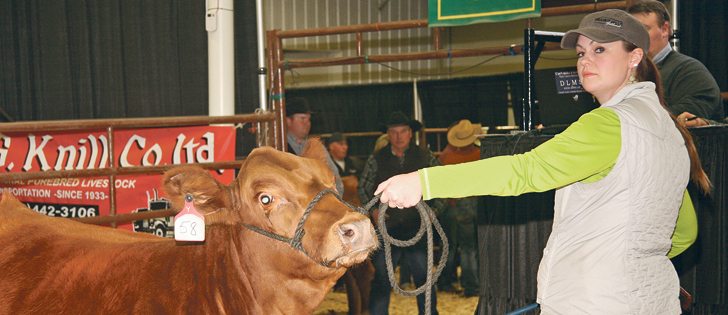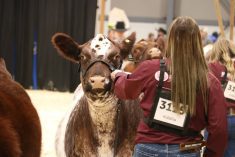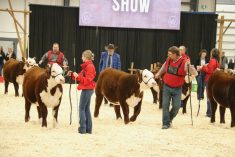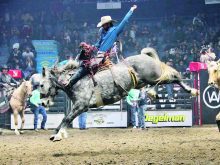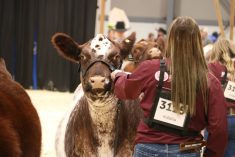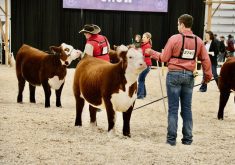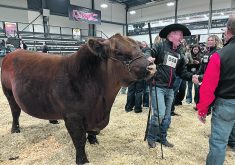REGINA — The Sickler family has travelled from North Dakota to Saskatchewan for the last eight years to attend Canadian Western Agribition.
The Regina show is among the closest livestock events that the family attends each year, said Klint Sickler.
Prairie Hills Gelbvieh, which is located near Gladstone, N.D., has developed a long-term trade relationship with Canadian breeders such as Vern and Eileen Davidson of Ponteix, Sask., and Rodney and Tanya Hollman of Royal Western Gelbvieh in Innisfail, Alta.
Sicklers’ Canadian friends convinced them to try Agribition when the borders opened after the BSE crisis. They also show at the National Western Stock Show in Denver, Colorado, and the Northern International Livestock Expo at Billings, Montana, but both shows are a considerable distance compared to the 500 kilometre drive to Regina.
Read Also

Using artificial intelligence in agriculture starts with the right data
Good data is critical as the agriculture sector increasingly adopts new AI technology to drive efficiency, sustainability and trust across all levels of the value chain.
Twenty percent of their business is with Canadians, and there is some concern among these producers about what may happen with the free flow of cattle now that U.S. President-elect Donald Trump has indicated he wants to renegotiate or make changes to the North American Free Trade Agreement.
You can find all our Canadian Western Agribition 2016 coverage here.
“We have developed a niche on the north side of the border,” he said.
Sickler does not want to lose the trade that has been nurtured since his family got into the Gelbvieh business in 1985.
The Sicklers became Gelbvieh breeders when Klint’s grandfather saw them at the Black Hills Stock Show and came home with two animals. They had raised registered polled Herefords since 1946.
“At the time, the Hereford market fell apart,” he said.
The family decided to go in a different direction.
They started a breeding-up program, in which the cattle eventually became 15/16 Gelbvieh. They have about 150 registered cows and an embryo program and have started a Red Angus component working with Canadian producers to form the nucleus of the herd. The two herds will not be blended.
They have not pursued the Balancer program that consists of cattle that are 25 to 75 percent Gelbvieh with the rest Angus or Red Angus breeding.
“Balancers are popular, but we tried to keep everything pure. Our customers want purebred cattle,” Sickler said.
Prairie Hills has hosted a sale for the last 30 years and watched the markets move up and down.
Many of the family’s customers are commercial buyers, but they are not sure what might happen in the seed stock sector this year now that the commercial market has crashed. Bull prices were exciting last year, but that could swing the other direction in 2017.
“The seed stock side has not been tested yet,” he said.
“Our commercial market is substantially lower.”
The Sicklers participated in the Agribition Gelbvieh show, selling two heifers for $5,200 and $4,750, respectively.


